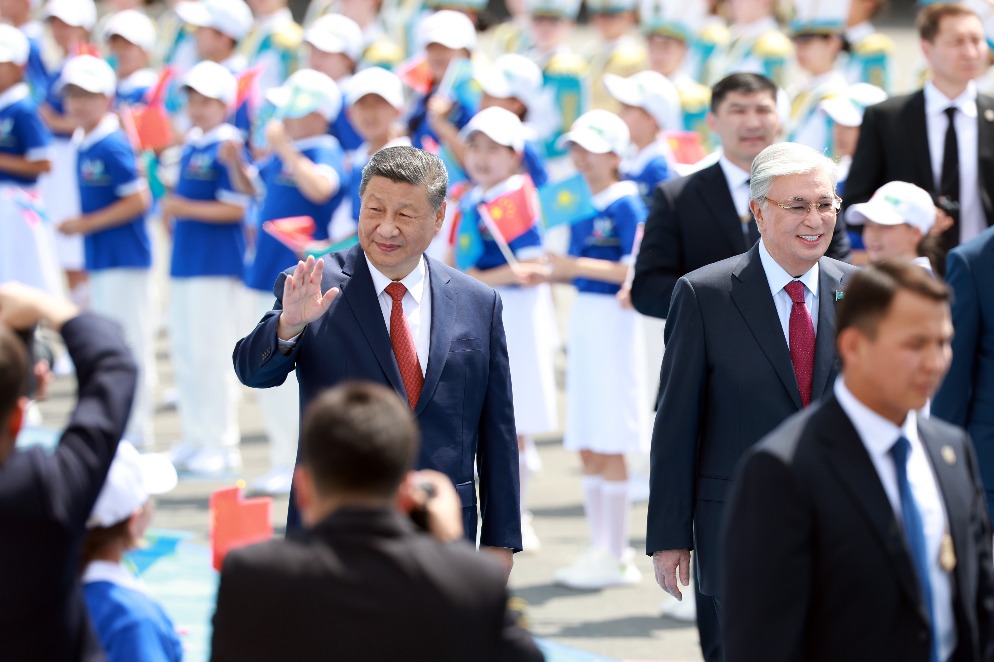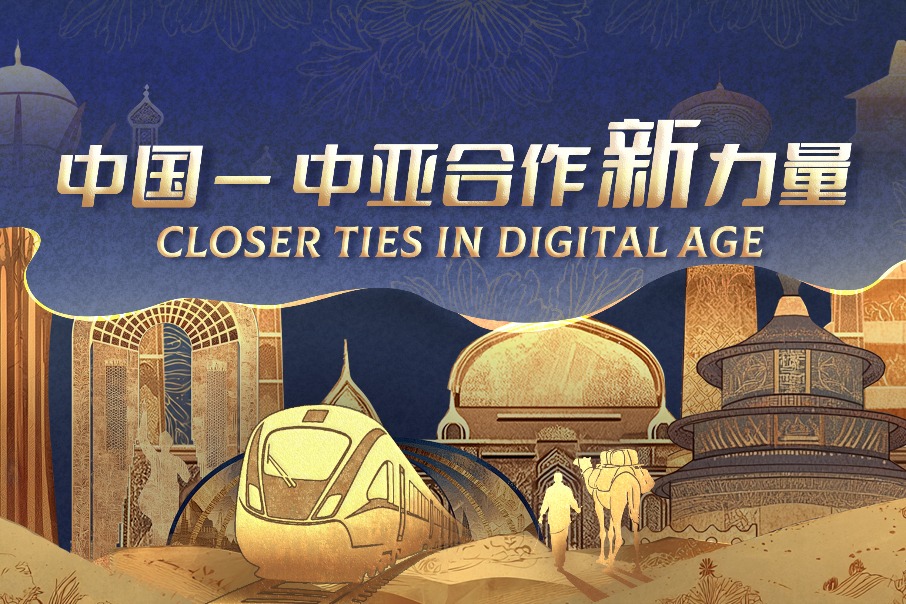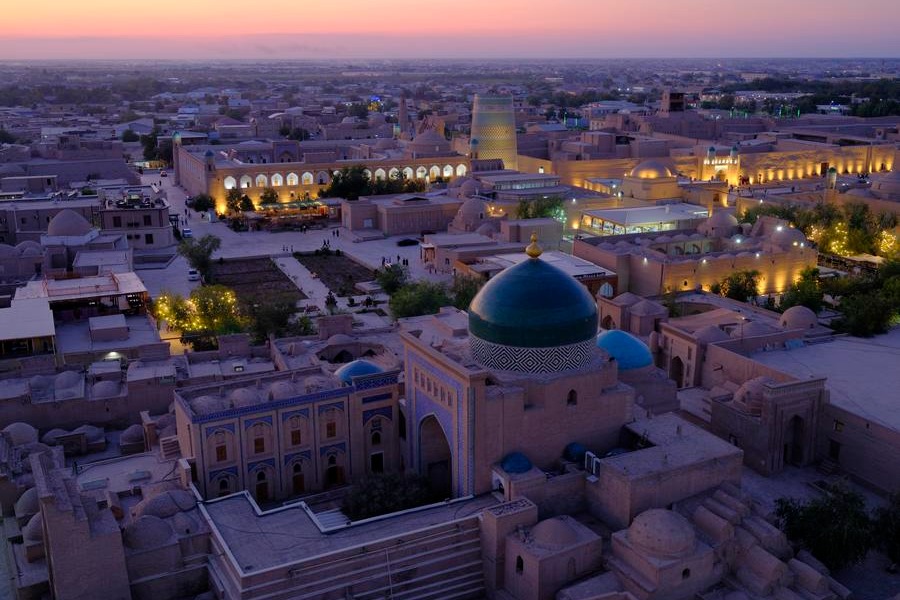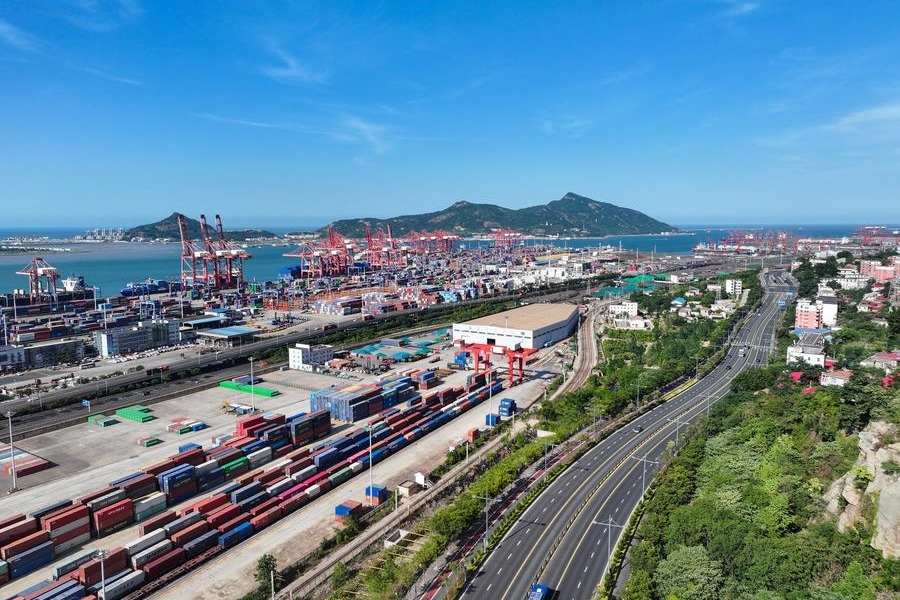Rise of the Global South


The inclusion of six new countries into BRICS signifies that developing countries are entering a new phase of institutionalized cooperation
Editor's note: The world has undergone many changes and shocks in recent years. Enhanced dialogue between scholars from China and overseas is needed to build mutual understanding on many problems the world faces. For this purpose, the China Watch Institute of China Daily and the National Institute for Global Strategy, Chinese Academy of Social Sciences, jointly present this special column: The Global Strategy Dialogue, in which experts from China and abroad will offer insightful views, analysis and fresh perspectives on long-term strategic issues of global importance.
Amid escalating competition among major powers, the Global South has proved its strategic value and become a significant political force with a profound impact on the international situation.
Following the collective economic rise of the Global South in the 1990s, the Ukraine crisis has further ignited the political awakening of the group. And the Global South is showing new development trends.
First, accelerating economic growth. Since the start of the century, the rise of developing countries has gained momentum. Despite suffering severe setbacks from the 2008 international financial crisis and the COVID-19 pandemic in 2020, the Global South has not only sustained its development, but is also gathering speed to grow.
According to the International Monetary Fund, based on purchasing power parity, emerging markets and developing economies accounted for 51.3 percent of global total gross domestic product in 2008, overtaking that of the developed countries. In 2022, the share increased to 58.3 percent, 16.5 percentage points higher than that of developed economies. When calculated at market exchange rates, the share in 2022 was 42.5 percent, a 21.6 percentage-point increase compared with 2000.
Second, strengthened political autonomy. After the Ukraine crisis, a growing number of countries in the Global South stopped blindly following the West. Instead, they started to express political positions and proposals different from the West, demonstrating their greater political autonomy. Many countries in the Global South oppose the use of military support to resolve the Ukraine crisis and call for multilateral solutions instead of unilateral sanctions.
Third, increased strategic value. Great powers are competing to win over the Global South. The Munich Security Conference in February 2023 included a session dedicated to South-North cooperation and it highlighted the Global South in its 2023 Munich Security Report. At the G7 leaders' summit in Hiroshima in May, strengthening outreach to the Global South was one of the key agenda items and some Global South countries were invited to participate as partners.
With the adjustment and transformation of the international order, the Global South has become a rising power and is playing an increasingly important role.
First, it serves as a balancer in the great power competition. The Global South has been pivotal in balancing major powers on a growing number of international affairs. For example, many countries in the Global South have adopted a balanced and prudent stance in terms of the Ukraine crisis, advocating a peaceful negotiation and opposing escalating confrontation that could result in a global catastrophe.
Such a balanced stance does not necessarily imply diplomatic neutrality. The latter means not taking a position and maintaining an equal distance from major powers, while the former represents a proactive, vibrant and constructive foreign policy.
Second, the Global South acts as a player in the multi-dimensional world. The international situation is complex and multi-dimensional. Advantages in one specific area will make countries or groups of countries an important power.
In a world where countries are highly interdependent, a country's power and influence are measured in multi-faceted dimensions. Due to the world's limited natural resources, countries in the Global South often exert influence in their advantageous areas. For example, some countries in the Global South with abundant energy and critical mineral resources are enhancing autonomy in resource development and exports, which leads to rising significance in global supply chains and industrial networks.
Third, the Global South also promotes the diversity of civilizations. The world today encompasses diverse civilizations, cultures and values. Many countries in the Global South, with a long history and rich cultural heritage, used to be pioneers. However, some of them were colonized by developed nations and were forced to delay or stop the progress of their civilizations. The rise of the Global South today is the revival of more civilizations, which will inject strong momentum into the world's diversity.
In recent years, some cooperation mechanisms led by emerging markets and developing countries have continued to expand, effectively promoting South-South cooperation and providing support for enhancing the international influence of the Global South. Among them, BRICS is particularly noteworthy.
After 17 years, BRICS has become one of the most influential South-South cooperation mechanisms and offers a crucial platform for the Global South to engage in global affairs. In order to enhance the representation of BRICS and better guide South-South cooperation, BRICS has been promoting its expansion to and cooperation with the Global South.
In 2011, BRICS made the first expansion by admitting South Africa as a formal member. As more Global South countries have sought to join the BRICS mechanism, the group reached a consensus at the 2022 Beijing summit to start the expansion process. In 2023, at the Johannesburg summit, BRICS decided to invite Saudi Arabia, Egypt, the United Arab Emirates, Argentina, Iran and Ethiopia to become formal members starting from Jan 1, 2024. The group plans to admit more new members in the future.
Moreover, the mature BRICS Plus cooperation model has provided a dialogue platform for more Global South countries to advance South-South cooperation. The 2013 BRICS summit in Durban initiated the mechanism for BRICS countries to engage in open dialogues with emerging markets, developing countries and important international organizations. Officially proposed during the 2017 Xiamen summit, the BRICS Plus cooperation model was aimed at promoting dialogue and cooperation with other countries in an equal and flexible manner.
During the 2022 Beijing summit, BRICS leaders, along with the leaders from Algeria, Argentina, Egypt, Indonesia, Iran, Kazakhstan, Senegal, Uzbekistan, Cambodia, Ethiopia, Fiji, Malaysia and Thailand, attended the High-level Dialogue on Global Development, expanding the BRICS Plus cooperation to more emerging markets and developing countries. At the 2023 Johannesburg summit, the model was extended to include all African countries.
With more countries in the Global South joining BRICS and participating in BRICS Plus cooperation, the BRICS mechanism has gone beyond its original role as a dialogue among the four founding nations, transforming into a primary platform for the Global South to engage in global affairs. The inclusion of six more Global South countries in the BRICS also signifies that the Global South is entering a new phase of institutionalized cooperation.
The author is a senior research fellow of the Institute of World Economics and Politics at the Chinese Academy of Social Sciences, and the National Institute for Global Strategy at the CASS. The author contributed this article to China Watch, a think tank powered by China Daily.
The views do not necessarily reflect those of China Daily.
































